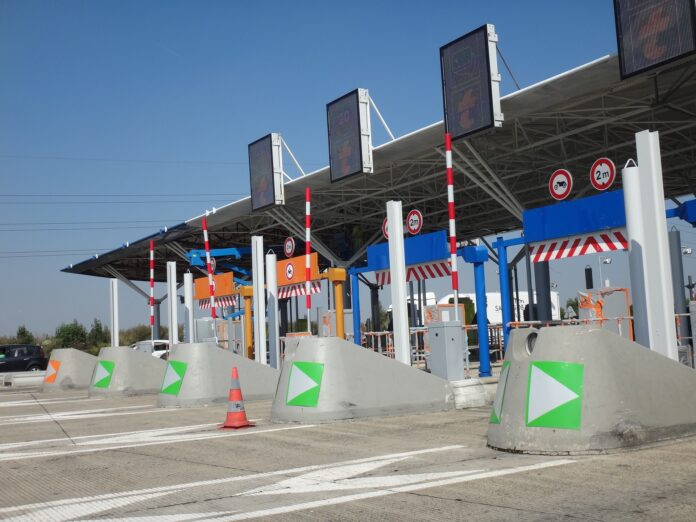This morning, Christian Estrosi announced the removal of the Nice Saint-Isidore toll within two years. Transport Minister Philippe Tabarot tempered this, suggesting a 2032 timeline. This divergence reignites the debate on the future of this section of the A8 and the freeway’s toll-free status.
Invited this Friday morning on the set of ICI Azur Matin, Christian Estrosi discussed an upcoming change on the A8 freeway. According to the mayor of Nice, the Saint-Isidore toll could be removed “within two years.” He claims to have received commitments in this regard from the Minister of Transport, Philippe Tabarot.
“The minister made commitments […] I hope that this will be finalized by the end of the year,” he stated. He believes that this toll causes significant nuisances: five tons of fine particles per year and 2,000 tons of CO2.
But by this afternoon, the minister nuanced the situation. Questioned in Toulon, on the sidelines of the inauguration of the A57 expansion, Philippe Tabarot declared: “we are considering a free flow but not the removal of the Saint-Isidore toll before 2032.” He clarified that the concession granted to Escota ends in seven years.
The minister nevertheless confirmed that an adjustment is being studied: “we are working concretely on implementing a free flow. This is already being done on the A14 […] thanks to a license plate reading system, users pay without realizing it.”
The debate on toll-free status reignited
The exchange between the two officials reignites a longstanding debate: that of making the A8 freeway toll-free on the Nice section. The Parti Communiste Français des Alpes-Maritimes (PCF 06) is bringing this demand back to the table.
According to the party, removing the toll would improve air quality, ease traffic, and reduce user expenses. Today, many motorists prefer to avoid the freeway and cross the city, contributing to urban congestion.
For PCF 06, making this section toll-free would have immediate effects: “with stagnant wages and skyrocketing living costs, making the freeway toll-free is a measure of social justice!” declares the organization.
The issue is not new. Back in 1997, activists were already denouncing the extension of Escota’s concession. They believed that the freeway should have been toll-free after thirty years of operation.
Recent examples also show that occasional toll-free periods are possible. Bikers have thus been able to travel for free during events like the Bol d’Or or the 24 Hours of Le Mans. For activists, these cases prove that a different pricing policy is conceivable.
An environmental and social issue
Behind the toll, several issues intersect. First, there’s the pollution generated by vehicle stops and restarts. Christian Estrosi highlights this in his manifesto for the preservation of the oceans, published this week on the occasion of the UNOC. He proposes various avenues: nuclear development, waste management, reindustrialization, but also the removal of congestion points like the Saint-Isidore toll.
In addition, there’s the economic aspect. The cost of using the freeway weighs on employees who have to use it daily. For some political parties, this justifies an urgent measure.
For now, no precise timetable has been set. The minister talks about technical solutions. The mayor mentions a quick decision. Meanwhile, users continue to pay.


